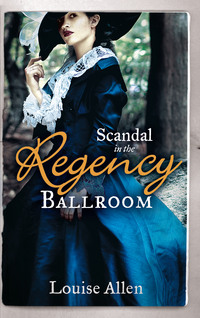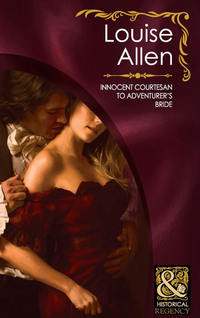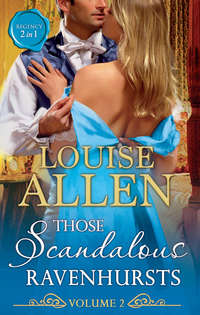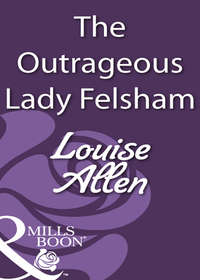
Полная версия
Snowbound Wedding Wishes
And what was that about? Dim light struggled through the shutters and Hugo gave up on sleep and sat up in his cocoon of blankets to contemplate his situation. And his hostess.
Another woman and he might have suspected that her visit was an invitation of a most blatant kind and one he would have been sorely tempted by. But no woman bent on seduction, however humble her circumstances, visited a man clad in a frightful garment apparently cobbled together from an old horse blanket and with her hair in plaits, and then picked a quarrel.
He was going to have to get used to the company of respectable women, if he was to find himself a wife this coming Season as he had planned. The idea had seemed reasonable when he had thought of it, months ago in France. It should be easy enough to find a well-bred young lady, a pretty society virgin who would give him an heir and, he had thought vaguely, a few other children to be on the safe side. He was eligible enough not to have too much trouble finding the right bride, he concluded without undue modesty. He had title and lands and wealth and an unblemished reputation.
This theoretical bride had no face in his dreams, no name, no character, now he came to think about it. In fact, he supposed he had not given her much thought at all. But living with a woman like this, in a home, with children, was unsettling. It made him realise that he could not just marry a cipher, he must find a person, one he could get on with, one whom he would like and respect.
Finding a bride would not be like buying a horse and he was guiltily aware that he had been thinking in much the same terms—age, bloodlines, temperament, looks…Yes, he was going to have to consider someone he could look upon as a companion.
He shifted uncomfortably on the hard straw mattress. Was this theoretical woman he intended to court going to insist on declarations of love, exchanges of emotion and intense conversations about feelings? He had the suspicion that she would, but how the devil did a man spout this stuff when he did not feel it, or understand it?
A gentleman was self-reliant and kept his feelings to himself, that was how he had been raised. Duty, honour, patriotism, friendship, loyalty—those were the important emotions and gentlemen did not need to speak of them. They took it for granted that their friends felt like that, too.
No true gentleman experienced violent emotions that might burst forth inappropriately—love, despair, fury. Passion. There had been liaisons in the past, of course, but even sexual encounters should not descend into uncontrolled passion and the sort of lady he would be courting would be horrified by those kinds of demonstrations.
No, you did not treat ladies—or respectable ale wives, come to that—as you treated a courtesan.
And that, Hugo concluded, rolling out of his nest of blankets, included removing one’s unshaven, unwashed self before she came downstairs to start the day.
Fifteen minutes later Hugo emerged from the cellar, where the copper had yielded enough warm water for a wash and a shave, rolled up his bedding, stowed it in a corner and went out to check on the animals. When he came back the inner door was open and both boys, hair uncombed, were standing in the kitchen, looking confused.
‘Mama’s still asleep,’ Nathan said. This was obviously outside their experience.
‘Are you sure she isn’t unwell?’ Hugo asked. In retrospect she had not seemed quite well last night, standing there shivering in that hideous robe, which was probably why he had wanted to put his arms around her.
Both boys stared at him, wide-eyed with anxiety. ‘Don’t know,’ said Joseph. ‘How do we tell?’
‘I had better have a look.’ Hugo walked softly upstairs. One door stood open on to what was obviously the boys’ room, the other was closed. He cracked it open, but the still figure under the heap of blankets did not stir. Now what? Knock and risk disturbing her if she was simply asleep or go in and check she was not running a fever?
He padded across the boards in his stockinged feet until he could see Emilia’s face. She looked peaceful enough: there was no sweat on her brow, she was not shivering and her breath stirred a wisp of hair in a steady rhythm. Hugo reached out and brushed it back, his fingers just touching her forehead. Her skin was cool, not feverish. Just tired, then.
It was an effort to lift his hand away. Her skin was smooth, soft, and yet beneath his fingers he could feel the delicate arch of her brow bone, the brush of her eyebrows. He felt himself hardening with desire and cursed his own lack of self-control. He should stop touching her. Now. Then Emilia stirred and her lips curved into a slight, tender smile. Something caught in his chest, almost painfully. His hand cupped in an instinctive gesture to caress her face and she opened her eyes.
‘Hugo?’ she murmured. She had been dreaming about him and here he was bending over her bed, those deep blue eyes intent on her face, his face serious, his hand brushing lightly over her cheek. It was still a dream, of course, a lovely dream. Emilia closed her eyes and drifted away again. Such a real dream…she could feel the cold of the room, the warmth of his breath, smell the soap on his hand.
‘Hugo?’ Emilia sat bolt upright. ‘What is wrong? The boys—’
‘Nothing is wrong.’ He backed away towards the door as she began to push back the covers. ‘They were worried because you were still asleep. Apparently that is unusual. I was concerned in case you were ill.’
‘No, I am quite all right. But I never oversleep.’
He shrugged, halfway through the door now, in full retreat. She realised what she was doing and left the covers as they were.
‘Perhaps you felt more secure with a man sleeping downstairs. More relaxed. We’re fine,’ she heard him say as the door closed. ‘I’ll start breakfast.’
Breakfast? Emilia threw back the blankets and almost fell out of bed. The chill of the room was more than enough to banish hazy dreams of tall, blue-eyed men. What on earth did he mean, relaxed? That she never slept properly because she always had one ear open for danger, for the boys, for the animals?
Perhaps he was right, she conceded reluctantly, as she splashed cold water on to her shivering body and scrambled into her warmest clothes. But she had never been aware of fear, of being braced for trouble. It was just that it was all her responsibility now, hers alone.
By now there was probably carnage in the kitchen. She bundled her hair into a net as she ran downstairs and then stopped dead, her hands still lifted to tuck in stray locks. The table was laid, the boys were dressed, their hair ruthlessly brushed, and the aroma of frying bacon was wafting appetisingly on the warm air.
‘Four eggs,’ Joseph said in triumph as he set the basket down on the table. ‘One each.’
‘Excellent.’ Hugo glanced up from the vast skillet he was wielding expertly. The intensity she had seen—imag-ined?—in his eyes in the bedchamber was replaced by nothing more disturbing than concentration. ‘Pass me those slices of stale bread, Nathan, and we’ll fry those in the bacon fat. We men will need some solid ballast inside us today. Joseph, pour your mama some tea.’
‘You are making breakfast.’ Emilia sat down on one end of the bench and smiled rather blankly at her son as he passed her the tea. Order, unburned food, quiet boys. The man was a miracle worker. Or a very good officer.
‘Of course. Soldiers cook. It was that or starve half the time when the baggage train got left behind. There, we’re ready. Plates, boys.’
Four plates were produced, loaded and conveyed somewhat unsteadily to the table. Tea and milk were poured. Hugo began to slice bread. ‘I can’t make bread, though,’ he said, passing a slice over to her.
‘No. I don’t expect you have felt the need.’
‘I have, frequently. It is just that it always turns out like boot leather.’ Perhaps that strange episode last night when she was so irritable with him had been the dream, because he showed no signs of recalling it. Best not to mention it, she would only get bogged down trying to explain something she did not understand herself.
‘I have checked the stable and the boys say they’ll feed the animals while I dig the pigsty out. Then I had best clear the way to the log pile and we can stock up on fuel inside before you tell me which neighbours I should be digging towards. You said last night there were some elderly ones?’
Oh, dear, it had not been a dream after all. She really had come downstairs in that frightful robe and lectured him on neighbourliness. And then she had slept in and he had felt it necessary to check on her and she had rubbed her cheek against his hand. It was all coming back in blush-making detail. No wonder he had retreated into brisk practicality.
‘There’s the Widow Cooke and then beyond her, old John Janes. I expect the other villagers will be out digging as well, so you’ll all meet up and we can work out if anyone is still cut off.’
‘And who would be doing the digging from here if I had not happened by?’
‘We would, the boys and I. It would take us a long time, though.’ And if she did not have to worry about the old people then she could get on with clearing the waste mash from the tubs. Emilia chewed on a mouthful of bacon, all the more delicious because she had not had to cook it, and gradually became aware that Hugo was frowning again.
He really did not approve of her working with her hands, that was obvious. What had possessed her to confirm his suspicions that she was gentry-born? Although the way she spoke and the fact that the boys were being educated in the classics were clues enough, she supposed. Did he think the labour was beneath her because of her birth or that he simply did not like to see a woman working hard? He was unobservant if he had never noticed just how tough life was for anyone outside the charmed circle of privilege.
‘I would warn the boys that the wind might change and they would be set with their faces in a scowl for ever,’ Emilia said lightly and his frown vanished.
‘Was I scowling? I am sorry. I think I have the kind of face that always looks serious in repose.’ He smiled. ‘Is that better?’
Do not do that! Having a large male, in his prime, wandering about the house was bad enough, but even when scowling Hugo was a good-looking man with his strong bones and firm chin and those deep-blue eyes. When he smiled right at her like that he took her breath away.
‘Infinitely,’ Emilia said and smiled back with determined friendliness. ‘Boys, you may leave the dishes this morning. Wrap up warmly and help the major with the wood and the animals.’
Emilia braced herself for the usual tussle of getting the twins into what she considered sufficient warm clothing, finding missing mittens, lost scarves and untangling bootlaces. Hugo simply stood up, said, ‘Anyone who is not ready in five minutes will stay and do housework’, and a miracle happened. He had no sooner pulled on his boots and put on his scarlet uniform jacket under the battered leather jerkin than both boys were standing to attention, every button done up, boots laced, scarves tied.
‘Right, forward march.’ He ushered them towards the door and turned at the last moment. ‘Let us know when you want us back, General.’ and he winked, reducing himself to the same age as the twins with one cheeky gesture.
‘Oh, for goodness’ sake!’ Emilia grumbled at herself as she dumped dishes in the stone sink and lifted the kettle from its hook over the fire. Hugo Travers was not a boy, he was a hardened soldier, probably with a woman in every town across three countries. She was certainly not going to feel maternal about him and she definitely could not afford to feel anything else, except possibly sisterly.
It was foolish to feel sorry for him, just because his childhood had been devoid of family love. Hers had been full of it—and look what happened the moment she strayed from what was expected of her: rejection. She had thought the well of love was bottomless, that she could give her heart to a man and her parents would forgive her, but she had been wrong, or, perhaps, simply unworthy. Hugo obviously had no parents or siblings to disappoint, but he seemed to have acquired incredibly high expectations of himself from somewhere.
Emilia realised she was standing with a kettle of cooling water in her hand and poured it over the dishes. Life had to go on, even when it consisted of dealing with every dish in the kitchen. Hugo might be a good cook, but he seemed to have no idea about the washing up he produced. Servants, of course, on the battlefield or in the home, would whisk away the debris that the master created. She rolled up her sleeves and attacked the washing-up, planning her day in her head as she worked.
The bite of the shovel into the snow, the contraction of his shoulder muscles as he lifted and swung the load to one side, the neatness of the path he was cutting through thigh-high snow were all a simple, satisfying physical effort which most effectively stilled any restlessness his unruly body was feeling. The trouble was, it left his brain free to run in circles like a dog in a turnspit wheel, analysing and speculating. Wanting.
Behind him the boys scurried to and fro with armloads of wood and buckets for the animals. The pig was complaining loudly that it wanted more food, across the frozen valley the sound from the church bells of the main village came clear on the cold air and close to hand Emilia’s neighbours called to each other as they negotiated the drifts. He had waved, called that Mrs Weston had directed him to the Cooke and Janes cottages and the other men had stared, but waved back in acknowledgement.
They would all come and investigate once pathways were open, he could tell. The glances in his direction fell short of being offensive, but left him in no doubt that they were watching him and it was out of concern for the alewife and her children, not simply country curiosity. That was good. He approved of that.
He reached the low-roofed cottage and banged on the door. ‘Mrs Cooke? Mrs Weston sent me to make sure you were all right. Can I bring your wood in?’ There was a tidy stack all along the front wall.
The door opened a crack and a wrinkled face peered out. ‘Who be you, then?’
Hugo explained, carried in wood, fetched a pail of water and checked the old lady had enough food in stock before digging on towards the next home, a mere hump in the snow with a trickle of smoke marking the chimney. The boys were on his heels now and set to work clearing old Mr Janes’s front step while Hugo made up his fire, brought in wood and promised to send bread and potatoes.
‘And who might you be, stranger?’ Hugo turned from closing the door to find himself face to face with a red-faced, brawny man. The smith, he guessed, from the size of the man’s shoulders. He carried a shovel in both hands and looked ready and willing to use it on more than snow.
‘Major Hugo Travers, snowbound here last night. And who are you?’
‘Will Cartwright, smith.’ He glanced over at the twins. ‘Morning, boys. How’s your ma?’
‘Fine, thank you, Mr Cartwright. The major cooked breakfast this morning and he’s got a huge horse!’ Nathan confided.
‘Has he now? Friend of Widow Weston, are you, Major?’
‘Never met her before in my life. I found her house in the middle of the storm and she gave me a bed on the taproom floor.’ He wasn’t used to explaining himself to villagers, but the man was genuinely concerned and he could not fault him for that.
‘Happen you’ll have some company this evening, then, because you’ll not be going anywhere for a day or so and that’s a fact. We tried the lane towards the pike road and it’s drifted deep.’
‘Then I’ll have to stay put and do what I can to help out,’ Hugo said amiably. He didn’t miss the reference to company. Every man in the hamlet was going to be in the taproom that evening, sizing him up. It should do Emilia’s income some good, if nothing else. ‘Anyone else need digging out?’
‘No. I reckon we’ve got the old folks and Willie Piggott, who’s a bit simple, all safe and sound. Old Janes all right?’
‘He needs bread and potatoes.’
‘I’ll see to that.’ The smith nodded, but spared the boys a smile. ‘You look after your ma now!’
Hugo trudged back along the deep-cut path. ‘What are your chores now?’
‘We’d be going to Mr Hoskins, the vicar, for our lessons today,’ Nathan explained. ‘But we can’t because of the snow and the flood and the bridge,’ he added smugly.
‘And you have no lessons to finish?’ Two broad grins were enough answer. ‘Well, fetch your books out and I’ll set you some.’ It was starting to snow again and their mother wouldn’t want them racketing about the house, bored with confinement all day.
Hugo bundled them inside, ordered boots and coats off and, when he had them settled in front of the range, chewing their pencils over Caesar’s Gallic wars, he went in search of Emilia.
He had hoped she might have taken the opportunity to rest, but noises from the cellar told him otherwise. When he came down the stairs she was standing in the mash tun, her skirts kirtled up around her knees, scooping wet mash out into buckets.
Hugo went down the rest of the stairs two at a time, strode across the floor and lifted her bodily out of the tun. ‘What the blazes do you think you are doing?’
She turned, a small, damp virago, pink in the face from indignation and bending over. ‘What am I doing? What are you thinking of, Major?’ Her hair was coming out of its net, her bare feet and legs were shedding wet grains all over his shoes and her hands were fisted at her waist. Her small, vulnerable feet. Her shapely calves and ankles, the slim waist and the womanly curves.
‘Thinking?’ Hugo realised that he had not been thinking at all. But he was now. She looked edible, vital, alive. Infinitely desirable. He took her by the waist again, drew her close and buried his face in the luxurious mass of her hair.
Chapter Four
Her mouth had been open to protest, but she was pressed against Hugo’s front, inhaling warm man as his hands shifted and he settled her more securely against himself. One hand pushed into her hair, sending pins falling free as he cradled her head, the other hand pressed open against her shoulder blades, moving in slow, devastating circles. Her hands were trapped between her breasts and his chest and his heart was thudding against her palms
All the air in her lungs and the blood in her head had vanished. It was wonderful and terrifying and she felt alive as she had not been for years. And it was wrong to be held like this, it had to be if it was this good. Emilia pulled a hand free, fetching Hugo a blow on the ear by mistake.
He set her back a little, just enough that their bodies were no longer touching. ‘Ouch! I am sorry—’
‘So am I. I didn’t mean to hit you.’ They stared into each other’s faces, their noses almost touching, their breath wreathing white in the cold air. ‘I didn’t mean for you to stop,’ Emilia blurted. She curled her hands around his waist and pulled and Hugo, with a groan that was either desire or despair and was, she thought wildly, possibly both, pulled her to him again.
Kiss me. Somehow she managed to keep the words in her head.
‘Major?’ called a treble voice from upstairs.
‘Hell!’ Hugo set her free so abruptly that she sat down on the edge of the tun. He was across the cellar and standing at the foot of the steps before she could gather her wits and realise where she was, what she was doing. What she had almost done.
‘Yes? I am down here. Are you stuck with that exercise?’ he called up, as calm as though they had been discussing hops and ale recipes.
Both boys came down the steps. ‘No, we’ve finished. Look.’ Joseph was waving a sheet of paper under Hugo’s nose. ‘See, Mama, we’ve translated a whole page! What are you doing?’
Goodness knows! Embracing a totally inappropriate man in the cellar. He is either sorry for me or he thinks I am pitiful and grateful for his attentions. ‘Emptying the used mash,’ Emilia said briskly. She pulled herself together and studied her sons. ‘Has Major Travers been setting you Latin lessons?’ They seemed unusually cheerful about the fact.
‘Yes, and they are all about wars and battles!’
‘How interesting. I just hope you aren’t both going to rush off to the next recruiting sergeant who comes around.’ They grinned back at her, knowing teasing when they heard it. Her feet were freezing now she was out of the slightly warm mash. Emilia slid her feet into her wooden pattens and tried to ignore Hugo, who shot her an unreadable glance, although whether it signified remorse at having embraced her or the strains of teaching small boys their Latin, she could not tell.
Hugo sat beside her on the edge of the tun and heeled off his shoes. ‘Where does this used mash go?’ He rolled off his stockings. Emilia averted her eyes from well-muscled, hairy calves.
‘We’ll show you.’ Nathan seized one of the filled buckets. ‘It all gets dumped over here and then when it is dried we use it for the animals.’
Hugo shed coat and waistcoat and rolled up his sleeves. Emilia kicked off the pattens and swung her legs over to get back into the tun.
‘No. I’ll finish here.’ He put one hand on her arm.
She still could not look at him, or think of anything to say with the boys so close. She was acutely aware of her wet skirts and bare calves, of the blood pounding around her veins, of the closeness of him and the warm weight of his hand against the skin of her forearm. From somewhere Emilia found her voice and something coherent to say. ‘Of course. I must get some food together. You will all be starving.’
She scrambled back out, jammed her feet into the pattens, let down her skirts and hurried upstairs without stopping to look back at Hugo or brush off the grains that clung to her legs. She heard the scrape of the wooden shovel on the stone base of the tun, the laughter of the boys as they fought over who was carrying the next bucket, then she was in the kitchen with the door safely closed behind her.
This was a disaster. What had she done? What had she risked, simply because of the aching need for strong arms around her, for the respite from being continuously in charge? And, yes, she thought, if she was going to be honest, she had wanted that fire in the blood, that sensual tingle between a man and a woman.
Emilia pulled onions and carrots out of their sacks and began scrubbing them to add to the soup that simmered on the hob. She worked as though she could rub away the feel of Hugo’s arms around her, the scent of him. She had made her decision when she had slipped away from that ball and fallen, laughing, into Giles’s arms. She had chosen love and laughter and joy for however long it lasted. And she had been blessed with four years of happiness and two wonderful sons.
But you paid the price of whatever your choices brought you. The boys had her total love and every moment she could devote to them, to building their futures. And the price for that was hard work and maintaining her reputation, not dallying with big strong soldiers. They were such good boys, so bright, so loving. She chopped the roots with savage swipes of the knife. They deserved the lives of opportunity their grandparents could give them.
But that was part of the price, too. And she had written three times and been rejected. So, no more false hope. One large tear plopped into the stock. ‘Stop it,’ Emilia said out loud.
‘Stop what?’ asked Hugo’s deep, concerned voice.
‘Stop being foolish,’ she snapped back as she peered into the jar of peppercorns and estimated how many she could afford to grind up for the soup. It kept her face turned from him, too. ‘Where are Joseph and Nathan?’
‘Checking on the animals and taking Ajax a bucket of mash. They offered,’ he added, coming fully into the room and leaning his broad shoulders back against the door. ‘I was not trying to get them out of the way, although it is convenient, I have to admit, for we need to talk. I should not have touched you. I do not know what came over me, which is hardly original or convincing, or even an excuse.’








